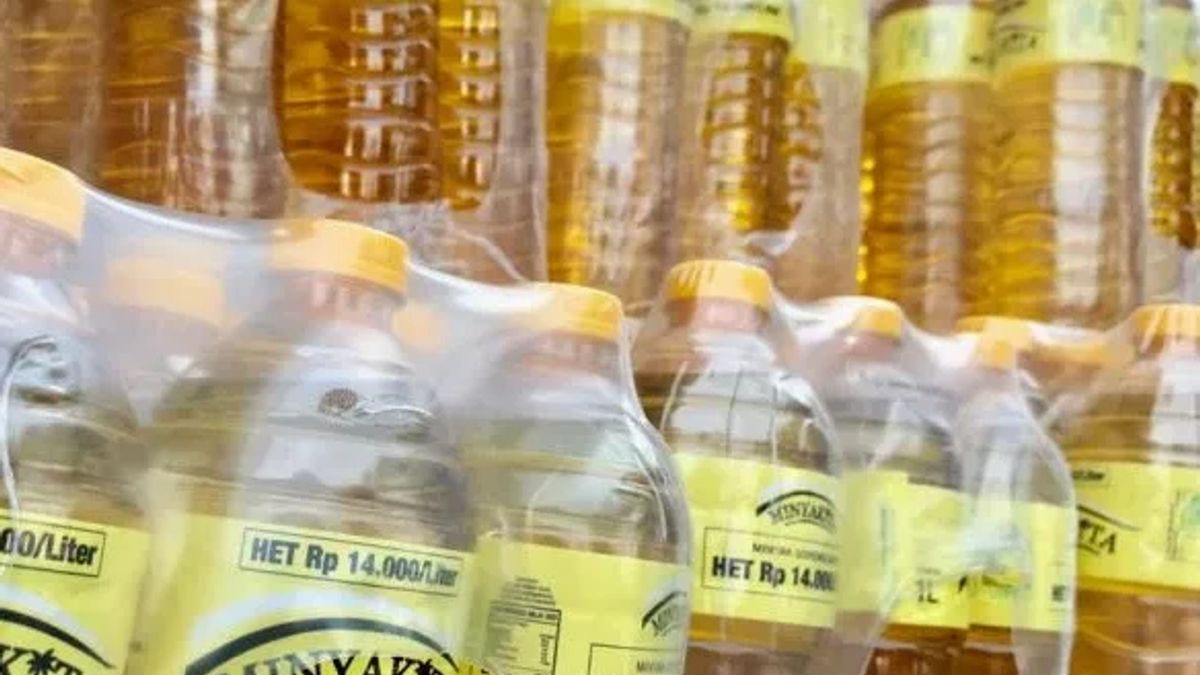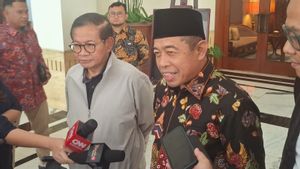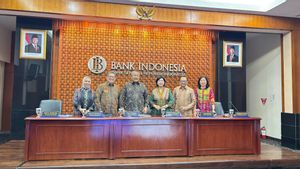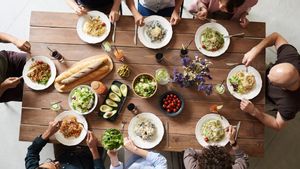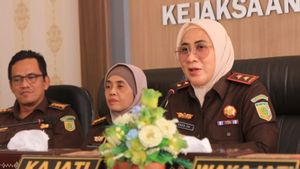JAKARTA - The National Food Agency (Bapanas) has formed government food reserves for sugar and cooking oil commodities. Bulog as a Food SOE has the task of storing Government Consumption Sugar Reserves (CGKP) and Government Cooking Oil Reserves (CMGP).
The rules regarding the implementation of Sugar and Cooking Oil reserves through the National Food Agency Regulation (Perbadan) Number 4 of 2023 concerning the Implementation of Government Consumption Sugar Reserves (CGKP) and Government Cooking Oil Reserves (CGMP).
Head of NFA Arief Prasetyo Adi revealed that these sugar and cooking oil reserves will be used to intervene in terms of supply stabilization and food prices.
"Now we have regulations governing sugar reserves and cooking oil. With strong food reserves, we can intervene to stabilize food supply and prices, especially in certain situations such as price fluctuations, natural disasters and other emergency situations," Arief told reporters, written on Sunday, March 26.
Arief explained that the reserves of the two commodities are like government rice reserves or CPP. Its function is to anticipate, mitigate and/or implement price stabilization, provide assistance, and other needs set by the government through the head of the national food agency.
Dalam Perbadan tersebut, penyelenggaraan CGKP dan CGMP ini melalui penugasan kepada BUMN Pangan dan/atau Perum Bulog yang meliputi penetapan jumlah, penyelenggaraan, serta pemantauan, evaluasi, dan pelaporan, hingga pendanaannya.
The implementation of CGKP and CMGP as regulated in this agency consists of three main parts, namely procurement, management, and distribution.
For the funding aspect, the implementation of CGKP and CMGP is sourced in the APBN or other legitimate and non-binding sources in accordance with statutory provisions, including through the provision of credit and/or interest subsidies to Perum Bulog and BUMN Food.
In an effort to carry out monitoring and evaluation of the implementation of CGKP and CMGP, in addition to involving elements of the Ministry of SOEs and regional apparatus organizations in the food sector, NFA also involved the Indonesian National Police Task Force (Polri Food Task Force) in terms of its supervision.
"Of course, in its implementation we cannot do it alone. It needs synergy with all elements, including in its supervision it also involves various relevant stakeholders," said Arief.
Regarding its management, Arief said that the Food SOE will implement a dynamic stock mechanism and use technology by considering distribution plans, the sugar cane milling season period, lead time, and economic value for CGKP, as well as distribution plans, lead time, and economic value for CMGP.
As for CGKP and CMGP which have the potential or have decreased in quality over 6 months, it can be released according to the results of the review from the Government Internal Supervisory Apparatus and institutions that organize government affairs in the field of financial and development supervision.
"The application of the dynamic stock mechanism in the management of CGKP and CMGP is almost the same as other CPP commodities such as rice and corn, but the difference is specifically for CGKP, it is done by considering the sugar cane milling season period," he added.
As for the distribution, CGKP and CMGP can be used for anticipation, mitigation, and/or implementation of price stabilization, provision of assistance, and other needs set by the government through the Head of the National Food Agency based on the results of a ministerial/head institution coordination meeting.
The English, Chinese, Japanese, Arabic, and French versions are automatically generated by the AI. So there may still be inaccuracies in translating, please always see Indonesian as our main language. (system supported by DigitalSiber.id)
